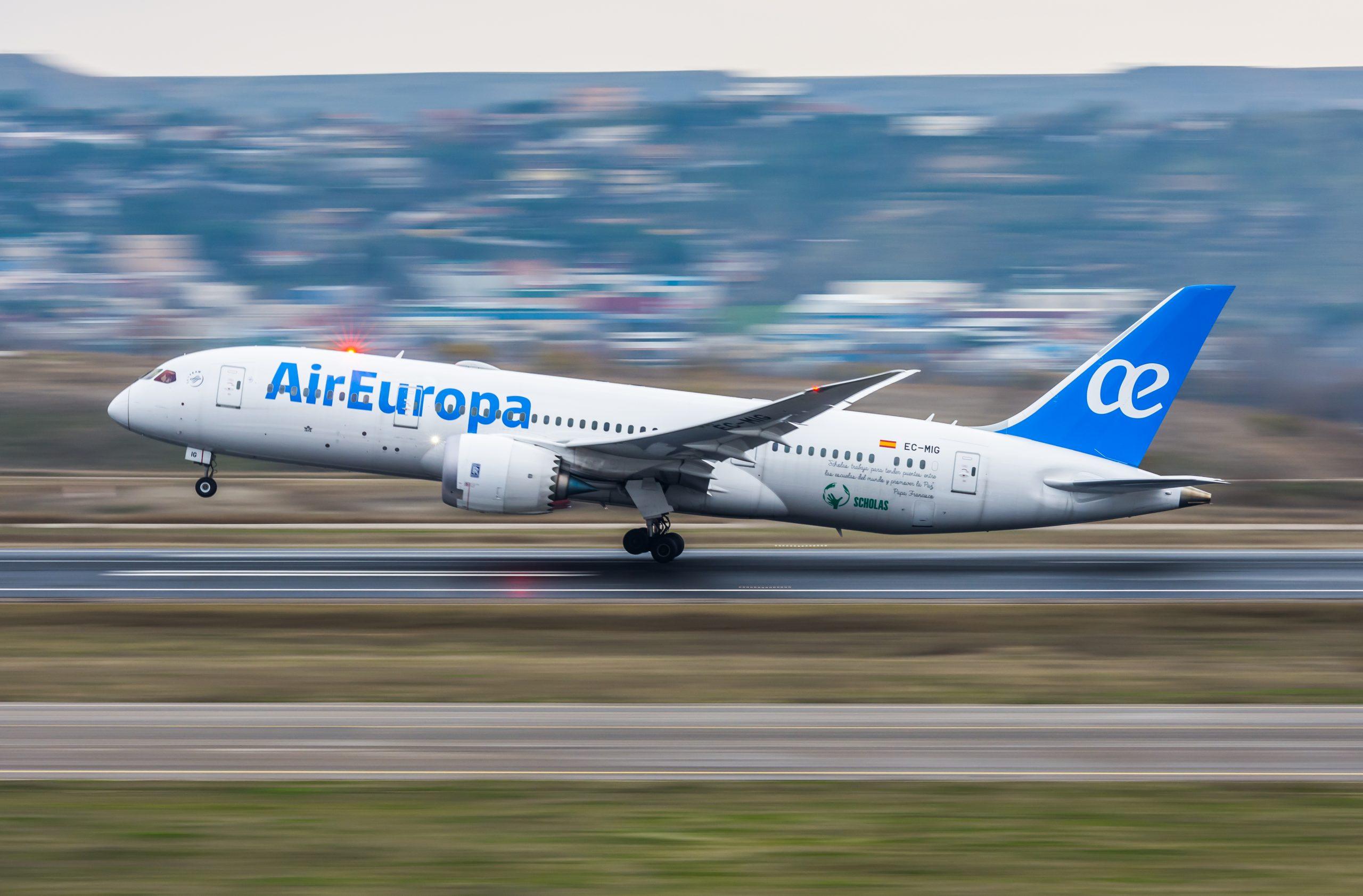This article is published in Aviation Daily, part of Aviation Week Intelligence Network (AWIN), and is complimentary through May 06, 2024. For information on becoming an AWIN Member to access more content like this, click here.
European Commission Says IAG-Air Europa Deal May Reduce Competition

The European Commission (EC) has sent a statement of objections to International Airlines Group (IAG), saying its planned acquisition of Air Europa may restrict competition on routes to, from, and within Spain.
The EC’s statement is a formal step in its ongoing competition investigation of IAG’s long-running bid to gain full control of Air Europa—currently owned by Globalia—which IAG wants to use to boost its Madrid hub.
“The Commission is concerned that customers may face increased prices and/or decreased quality of service after the transaction,” the EC said in an April 26 statement.
The EC opened its in-depth investigation into the proposed deal Jan. 24 and said it had reached this preliminary conclusion after a wide-ranging investigation, including analyzing documents and speaking to other airlines, airports, slot coordinators and consumers and consumer bodies.
The statement of objections is not an end decision but is a formal step in the investigation in which the companies involved are informed in writing of the objections. The EC stressed the sending of the statement does not prejudge the outcome of the investigation. IAG now has the opportunity to reply to the statement, to consult the case file, and to request a hearing with the EC. It can also put forward remedies to the preliminary competition concerns the EC has raised, with the current deadline to do so set for June 10.
The EC detailed the concerns that emerged during its investigation, saying it is concerned the transaction may reduce competition on a number of domestic Spanish routes, including ones without a high-speed rail alternative as well as on routes between peninsular Spain and the Balearic and Canary Islands.
“On such routes, IAG and Air Europa compete head-to-head,” the EC said. “For a few of these routes, there will be no direct competition after the transaction. For other routes, competition appears limited and comes primarily from regional Spanish airlines and low-cost airlines, such as Ryanair.”
The EC also said it was concerned the deal could reduce competition on a number of short-haul routes between Spain and European and Middle Eastern destinations on which IAG and Air Europa either already compete head-to-head or will do so in the foreseeable future.
“Competition on such routes appears limited and comes primarily from low-cost carriers, such as Ryanair, who in many cases operate from more remote airports, or from the incumbent carrier of the destination country,” the EC said. The EC also expressed concerns about competition on a number of long-haul routes between Spain and North and South America, where there is or will be head-to-head competition between IAG and its joint venture partners and Air Europa. “For some of these routes, there will be no direct competition after the transaction. For other routes, competition from other airlines appears limited and both parties have relatively high market shares.”
Marco Sansavini, the new president of IAG airline Iberia, said April 3 that completing the Air Europa purchase would elevate Madrid to the level of the hubs of northern Europe. “Getting Spain and Iberia to be part of the Champions’ League of aviation” would be among the first challenges of his new job, Sansavini said. “This can only be achieved by a strong airline that can connect Spain with many more destinations, hence the vital importance of the Air Europa purchase operation.”
Sansavini said IAG and Iberia have made “a very ambitious offer to guarantee competition on the routes where we operate and we trust that the European Commission will approve the operation, which is key for the connectivity of the Madrid hub, for consumers, employment and tourism, and the Spanish economy.”
The EC said these routes represent a total annual spending of over €3 billion ($3.2 billion), with millions of passengers traveling on them. “The Commission’s objective is to ensure that the transaction does not lead to adverse effects for customers—consumers and businesses alike—in terms of increased prices or decreased quality of services,” the EC said. “The Commission is concerned that, absent suitable remedies, the removal of Air Europa as an independent airline may have negative effects on competition in these already concentrated markets.”
IAG, also the parent company of Aer Lingus, British Airways and Level confirmed it had received the EC’s statement of objections, which it had been expecting, and said the statement is a normal step in the regulatory process for complex transactions, as it provides details on the EC’s concerns.
“We will continue to engage on a package of remedies to meet those concerns,” IAG said. “As Luis Gallego, CEO of IAG said, we are willing to transfer the equivalent of 40% of the flights operated by Air Europa in 2023 to other airlines. Likewise, we commit to ensuring that no route is operated exclusively by Iberia and Air Europa. We remain committed to closing this transaction as quickly as possible in 2024, so that we may start delivering the deal’s benefits for consumers and the wider Spanish economy, while increasing Madrid’s competitiveness with other European hubs.”





